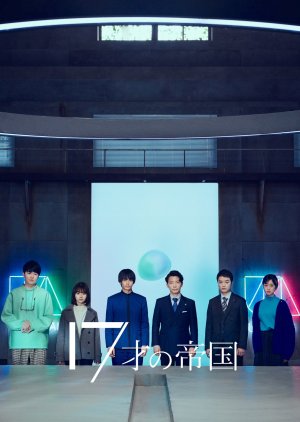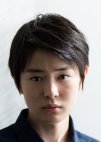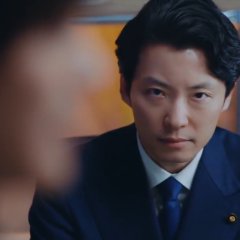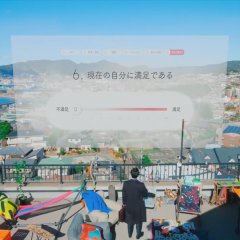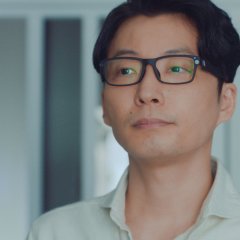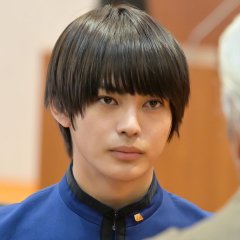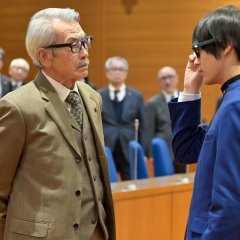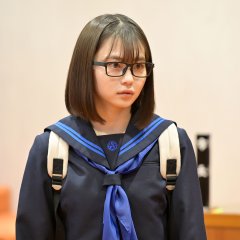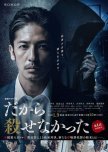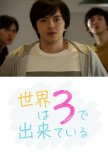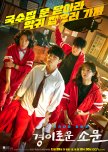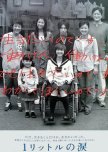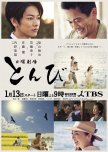- Français
- Español
- English
- magyar / magyar nyelv
- Titre original: 17才の帝国
- Aussi connu sous le nom de: 17-Year-Old Empire
- Réalisateur: Kuwano Tomohiro, Nishimura Takegoro
- Scénariste: Yoshida Reiko
- Genres: Drame, SF, Politique
Distribution et équipes
- Kamio Fuju Rôle principal
- Yamada Anna Rôle principal
- Hoshino Gen Rôle Secondaire
- Kawai Yuumi Rôle Secondaire
- Mochizuki Ayumu Rôle Secondaire
- Sometani Shota Rôle Secondaire
Critiques

Hidden Gem Jdrama in 2022
Five episodes only but it was really well written. Love the concept that they're trying to bring out. Therefore, its understandable they make it less episodes. Its all about change and acceptance of politics.It was brilliant idea they make 17 years old boy lead the city while the supporters are in 20's . Different age but the ideals are same. The mysterious of teenage boy being selected is there and we also can see the perspective from young, naive, inexperience 17 years old boy that we might miss out. Even though the story is packed but the flow is pretty good. I really enjoyed watch this drama.
All cast makes a great chemistry with good acting especially Hoshino Gen as Taira san. His role is totally outstanding through out this drama. It was mesmerizing. Other than that, this drama has superb cinematography. Its like you're really in AI era. What kind of future are we going to see, with all these advanced technologies..?? That's how they choose one city for experimental.
Besides that, I love the OST from this drama. It gives me chills in a good way. Really fit for this drama. Overall, this drama are great,interesting and satisfying. No wonder this drama Won the Monthly Galaxy Awards for June 2022. So, I HIGHLY RECOMMEND for you guys to watch it!! Its worth it!!
Cet avis était-il utile?

A Very Mixed Bag
TL;DR:It starts out mediocre and gets pretty good in the end. The music, graphic design, and cinematography are all fantastic, and the acting can be great as well. There are many interesting ideas brought up, although some of them are only barely touched on and others are presented strangely and without a clear message. In the beginning, it's just not all that interesting to watch.
Full Review:
This show has so many ideas that it's difficult to dissect them all. There are ideas about AI, about the future of technology. There are ideas about corruption, an aging world, and a lagging government. Of course, all this is discussed through the medium of story, through the tale of an experimental government run by the young with the help of a powerful AI. Now, I have many thoughts about the moral, governmental, and technological ideas which are brought up by the show, but first and foremost a show must be entertaining, so that is what I will discuss first, and what I will be most critical of.
This series is a good example of why it's important to watch a whole series through before reviewing it. That's because my opinion of it changed quite a lot throughout the episodes. My initial impression was one of intense excitement; the incredible music and graphic design sent my hopes soaring sky high. Unfortunately, this excitement was quickly depleted as I was faced with a number of tropes which seem pervasive across many Jdrama (I'll go more in detail later). Highly expecting a forgettable show, I stuck it out only because of the five episode run time. But, to my surprise, the last two episodes marked a tangible shift in the show's quality. I became more engaged, the plot became more dramatic, and several seemingly unrelated story lines started to come together. It almost makes it difficult to review the show as a whole, when those episodes feel so drastically different from the rest. Nevertheless, some good episodes do not excuse other poor ones, so I will try to critique and complement as fairly as possible.
On the note of complements, let me preface my in-depth review by saying that the score to this show is absolutely astonishing. Not only does it perfectly fit the genre and style of the show, it's just nice to listen to. This is accompanied by great cinematography in important scenes, and fantastic graphic design in all areas it's applied. If you watch the show, you'll instantly see what I mean. Now, during the meat of show, the cinematography can drop in quality a bit, but honestly it's made up for by the intro sequence alone. Okay, so let's move on to the rest of the show, where sometimes things get a little messy.
Firstly, the show falls into the common but unavoidable pitfall of having a fantastic premise. There's nowhere to go but down. And, when you're experimenting with something as controversial and poorly understood as government and society, there's bound to be things you didn't think of or that you represent improperly. The last two episodes solve this problem by presenting the issues very vaguely, not going into the specifics of them but rather using the existence and execution of them to move the plot (in general, the final two episodes focus more on human interest and drama, which may be part of why they feel more interesting and dynamic). Unfortunately, the first three episodes do little to diminish this challenge, instead attempting to present real plans and solutions to various real world problems. In fairness, to do otherwise might feel like a cop out in a show specifically about governance and radical change, but in the end, some of the ideas are a bit unrealistic, even with futuristic technology. I won't delve into these issues for the sake of spoilers and brevity, but suffice it to say that some solutions seem like the first instinct of a random person in office, rather than a well thought out policy decision. Maybe I'm being too harsh.
The reason which leads me to be so hard on the specific policy moves made by the characters in the show is that I'm forced to latch onto those details by an unfortunate lack of character development and interpersonal intrigue. Besides the two main characters and a few others, barely any of the remaining ensemble cast receives much attention character wise. Certainly it may be difficult to fit it into a 4-5 hour runtime, but honestly the show tended to be quite slow paced, so that might have helped into multiple regards.
Further development of other characters might also have helped to alleviate what was, in my opinion, one of the biggest flaws in the show: the main character. A main character is called that for a reason: they are the center of the action, and generally the most important person in the story. Some other shows may have characters (called narrators) which speak directly to the audience or who are used as medium by which to present the story to the audience, but they are generally not the main character. In this show, the main character acts like a narrator, presenting the story through their eyes (albeit not speaking to the audience as a narrator typically would). Unlike a narrator, they are active within the story to some degree. They are a character, but they are not the most important character. This, in my eyes, is a drastic flaw. It's exacerbated by the fact that, during the course of the show, the main character is mostly passive, reacting to things that happen rather than making proactive decisions with proactive goals. Instead, there is another character who is clearly more important, and who basically brings the protagonist around with them as if they were a pet. We don't know this other character as well, and do not empathize with them as much, which makes it uncomfortable to watch our main character sit around while the other character does things and makes decisions. This sort of thing may affect different people by different amounts, but I was consistently annoyed by it.
This only contributed to- in the first three episodes- my general boredom with the show. I watched it as it came out, but if I was to trying to binge it I'm not sure I would've been able to finish. Besides a passive mc, the show also occasionally suffered from Jdrama style acting, whereby dialogue is overdramatized and delivered over bizarre stage direction which just feels unnatural. Strangely enough, the acting became significantly better in the final episodes, which leads me to believe it was the fault of the director, rather than the actors, whenever scenes were lacking. I don't think this style of acting is uniform across all of Jdramas, and I don't think it has as much of an affect on the show as the writing, but it does still have an impact, unfortunately.
It's tough to make a conclusion about this show, since there are so many different things at work here, and because my opinion of it changed so drastically over time. There were several interesting ideas brought up, and if all the episodes were the same as the last two, I'd recommend it in a heartbeat. Unfortunately, those first three episodes exist, so I'll have to make a compromise. First of all, if you like OSTs, at least check out the show's intro, or the main theme (it's available as Teen Regime on multiple music streaming apps). But mainly, if you have patience and an interest in this topic, go ahead and watch this and be sure to stick around until the end. Otherwise, you can feel safe to skip it.
Cet avis était-il utile?
Recommandations
There have been no recommendations submitted. Be the first and add one.

